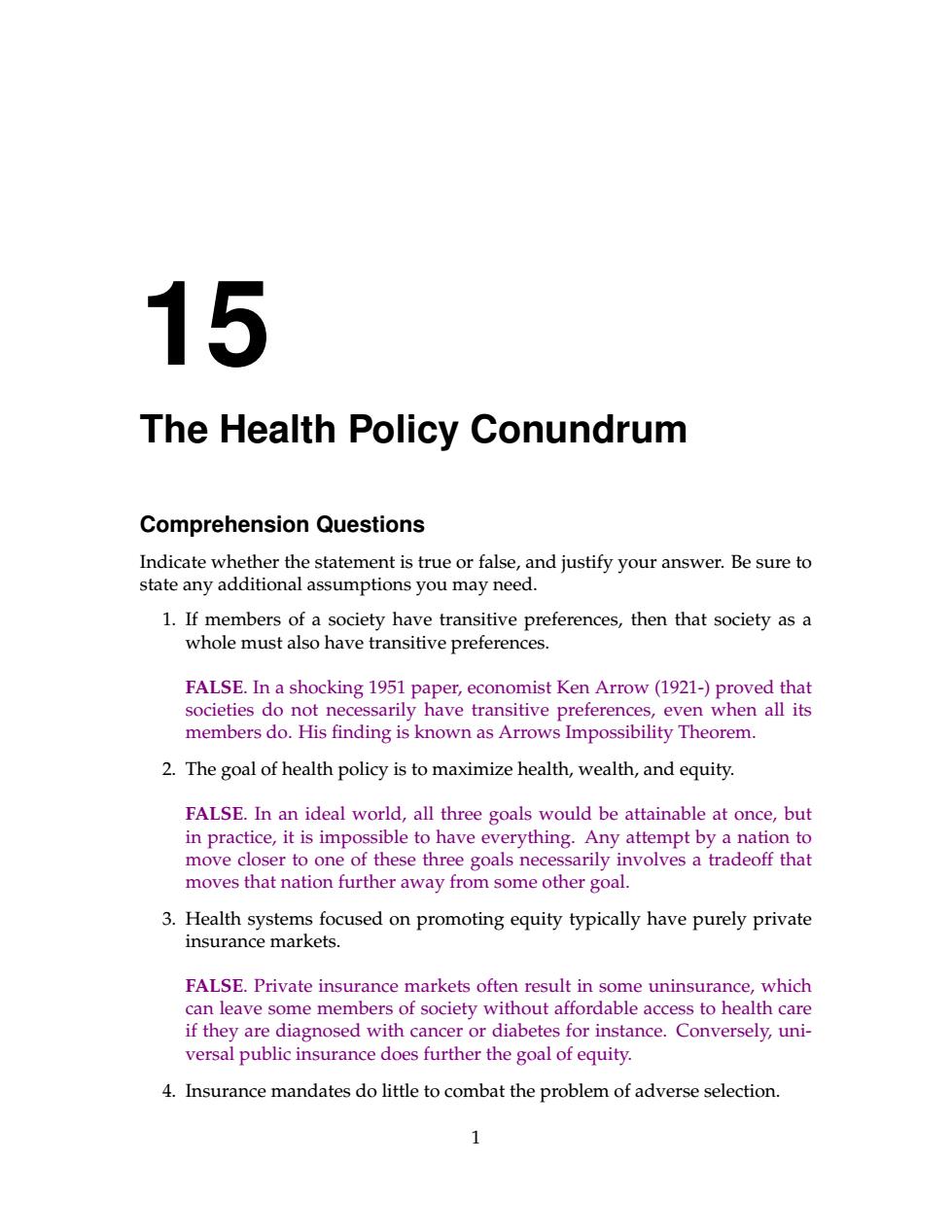正在加载图片...

15 The Health Policy Conundrum Comprehension Questions Indicate whether the statement is true or false,and justify your answer.Be sure to state any additional assumptions you may need. 1.If members of a society have transitive preferences,then that society as a whole must also have transitive preferences. FALSE.In a shocking 1951 paper,economist Ken Arrow(1921-)proved that societies do not necessarily have transitive preferences,even when all its members do.His finding is known as Arrows Impossibility Theorem. 2.The goal of health policy is to maximize health,wealth,and equity. FALSE.In an ideal world,all three goals would be attainable at once,but in practice,it is impossible to have everything.Any attempt by a nation to goals nece ssarily involves a tradeoff that further away from some other goal. 3.Health systems focused on promoting equity typically have purely private insurance markets. FALSE.Private insur ance result in so e,which theyare diagnosed with cancer or diabetes for instance.Conversely versal public insurance does further the goal of equity. 4.Insurance mandates do little to combat the problem of adverse selection15 The Health Policy Conundrum Comprehension Questions Indicate whether the statement is true or false, and justify your answer. Be sure to state any additional assumptions you may need. 1. If members of a society have transitive preferences, then that society as a whole must also have transitive preferences. FALSE. In a shocking 1951 paper, economist Ken Arrow (1921-) proved that societies do not necessarily have transitive preferences, even when all its members do. His finding is known as Arrows Impossibility Theorem. 2. The goal of health policy is to maximize health, wealth, and equity. FALSE. In an ideal world, all three goals would be attainable at once, but in practice, it is impossible to have everything. Any attempt by a nation to move closer to one of these three goals necessarily involves a tradeoff that moves that nation further away from some other goal. 3. Health systems focused on promoting equity typically have purely private insurance markets. FALSE. Private insurance markets often result in some uninsurance, which can leave some members of society without affordable access to health care if they are diagnosed with cancer or diabetes for instance. Conversely, universal public insurance does further the goal of equity. 4. Insurance mandates do little to combat the problem of adverse selection. 1